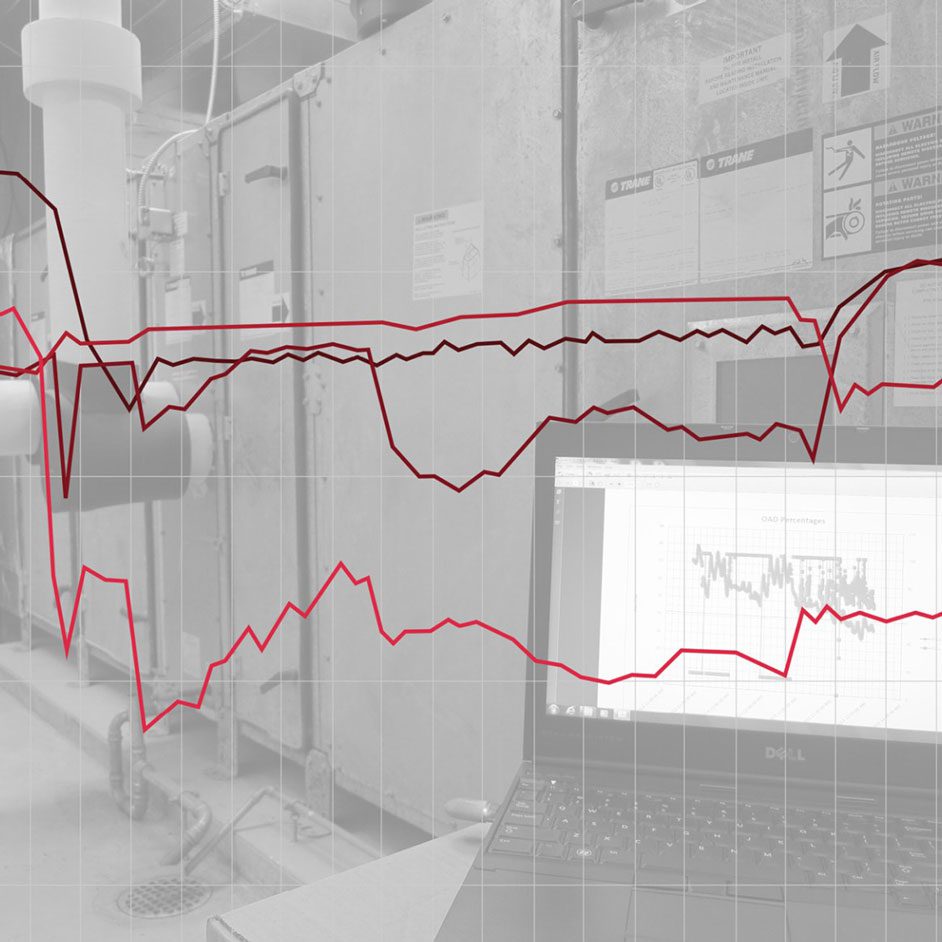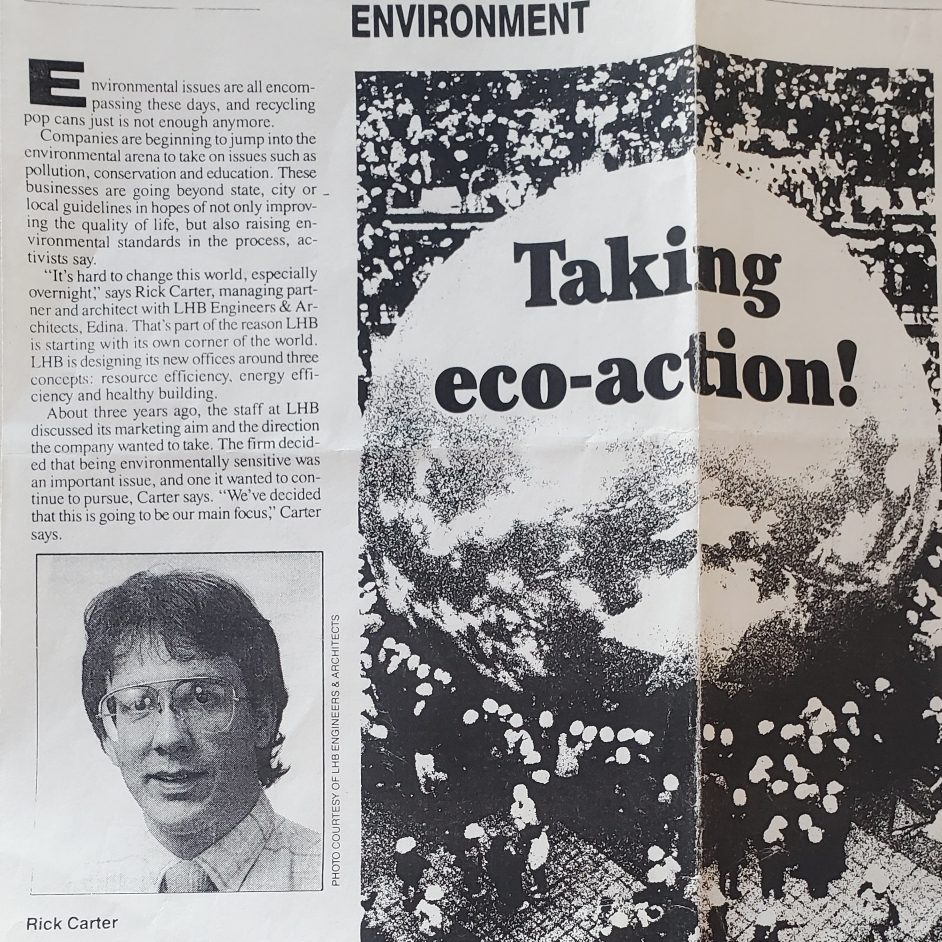

What is commissioning?
The standard commissioning process was created by the American Society of Heating, Refrigerating, and Air Conditioning (ASHRAE). They explain commissioning as:
“A quality-oriented process for achieving, verifying, and documenting that the performance of facilities, systems, and assemblies meets defined objectives and criteria…The commissioning team uses methods and tools to verify that the project is achieving the owner’s project requirements throughout the delivery of the project.” [I]
Through the commissioning process, you’re ensuring that the building systems perform the way they were designed. Completing the full commissioning process requires getting involved before design even begins, and staying involved throughout the entire design process. Once you move into the construction phase, the commissioning agent will start functionally testing the equipment and confirming that everything was installed correctly. It’s all about quality control and making sure everyone is held accountable.
Can you give an example of the sort of issue commissioning can resolve?
For one retro-commissioning project I worked on (meaning commissioning for a building that is already in use), we tested a space where the temperature was comfortable, the heating valve appeared to be closed, and everything on the building automation system looked good. But in reality, the valves were faulty. On-site we could see there was simultaneous heating and cooling happening in the room – because of the faulty valves they were heating the perimeter with finned tube radiation, then cooling it down with a variable air volume system overhead. But the room was totally comfortable and no one knew the difference! That’s the kind of inefficiency we can identify through commissioning.

What misconceptions exist about commissioning?
Some people think if you’re doing commissioning you should do the whole ASHRAE process from start to finish. But there are many sophisticated clients out there who don’t need assistance creating, say, an owner’s project requirement, which is part of the official ASHRAE process. There are varying levels of commissioning service we can provide depending on the client’s needs and budget.
A lot of people also think that commissioning is a cost add to the project. But when the commissioning process is done properly, it should save substantially on construction costs because you’ll have fewer change orders. Overall, the project is going to run a lot smoother if everything is done correctly from the start.
How have you seen the commissioning process evolve over your career?
One thing I’ve seen change over my career is that commissioning is now generally an expectation on projects. That’s been the biggest change – awareness.
The other thing that has changed is our ability to do commissioning remotely. Today, when you’re sitting at the computer on the building automation system, it’s like you’re playing a video game – you can manipulate systems without leaving your desk. For example, I could set the room temperature to 80 degrees, then remotely see a heating valve open and watch the discharge air temperature start to increase. There is still value in being on-site, but now we can do a lot of troubleshooting remotely.
How does commissioning fit into sustainable building certifications? Is commissioning necessary to create a sustainable building?
The sustainable building certifications have recognized that commissioning is very valuable – B3 and LEED, and others, have implemented components of commissioning in their certification processes. Commissioning is a critical component of the sustainable design and construction process. Even if you have a great design team, it’s helpful to have another set of eyes reviewing documents and another brain thinking about sustainable options.
What advice would you give to new mechanical engineers interested in building design and commissioning?
I think mechanical engineers often struggle to accept that design is iterative. Many engineers want to do their design once and be done. But revision is a necessary part of the engineering process. Mechanical engineering for building systems is more of an art than a science. For new engineers, I think having that mindset is more valuable than any specific skill.
[i] HVAC&R Technical Requirements for the Commissioning Process. (2007, June 27). ASHRAE Guideline I.I-2007. ISSN 1049-894X.

